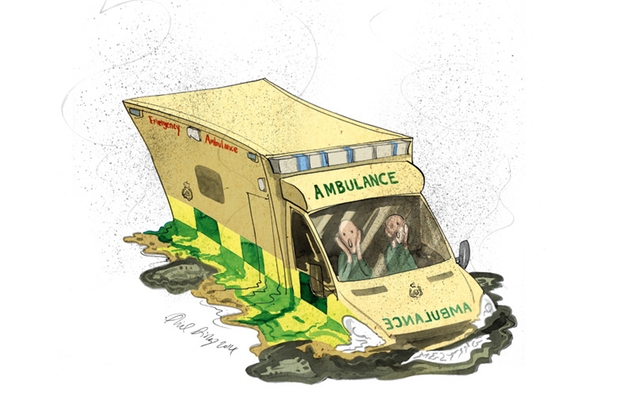The junior doctors’ dispute has been characterised by a series of extraordinary claims by the BMA. At one time the union claimed that doctors were going to suffer a real-terms pay cut of 26 per cent – a claim debunked by the respected Channel 4 Fact-checking team. A pay calculator on the BMA website which claimed to show doctors losing money was later removed.
Yesterday, in a piece for The Spectator, junior doctor Calum Miller made an extraordinary claim that ‘A&E doctors have a lower life expectancy than poverty-ridden countries like Afghanistan and Haiti’. The World Bank gives a figure for life expectancy for Haiti at 62.70 and Afghanistan at 60.51. So is the average A&E doctor in the NHS really popping his clogs in his 50s?
The claim, it transpires, derives from a paper published in the British Journal of Cardiology in 2009, which is itself based on an analysis of 3,342 obituaries of doctors which appeared in the BMJ between 1997 and 2004. The paper gives an average age of death for A&E doctors in the sample of 57.5 – which is indeed shockingly young.
Let’s brush aside the objection that some of these deaths occurred nearly 20 years ago, before Tony Blair’s new deal, when junior doctors’ working hours were much longer than they are now. Data on deaths 20 years ago should not really be compared with current data for life expectancy at birth – you are effectively comparing lifespans in people born nearly a century apart.
There is a far greater objection to the statistic. The average age of death for A&E doctors is based on a sample of only 17 doctors. Moreover, there is nothing to say how many of them were British nor how long, if at all, they worked in the NHS. They are a sample chosen according to whether the BMJ considered them worthy of an obituary.
But most of all there is the issue of how long A&E has been considered a distinct speciality within medicine. If somebody died aged 80 in 1997 they would presumably have retired around 1982. Did doctors call themselves A&E doctors in those days – or would their obituaries have described them by other means? I found the answer to this question on the careers page of the BMJ website, which states that A&E only became a recognised branch of medicine in 1972, before which accident and emergency departments were led by orthopaedics.
In other words, your obituary is unlikely to have described you as a specialist in A&E unless you trained after this date. Small wonder there are only 17 A&E doctors in the sample, compared with 107 paediatricians, 165 anaesthetists and 174 psychiatrists – they are a self-selecting group of relatively-recently trained doctors who happened to die young.
The next youngest group at death, by the way, were anaesthetists, who died on average at 71.9, while the average age of death for all 3,342 doctors was 76.1. I am sure that being a doctor is very stressful and there are professionals who make far easier money and do far less social good. But no, Jeremy Hunt isn’t driving his A&E doctors to an early grave.







Comments